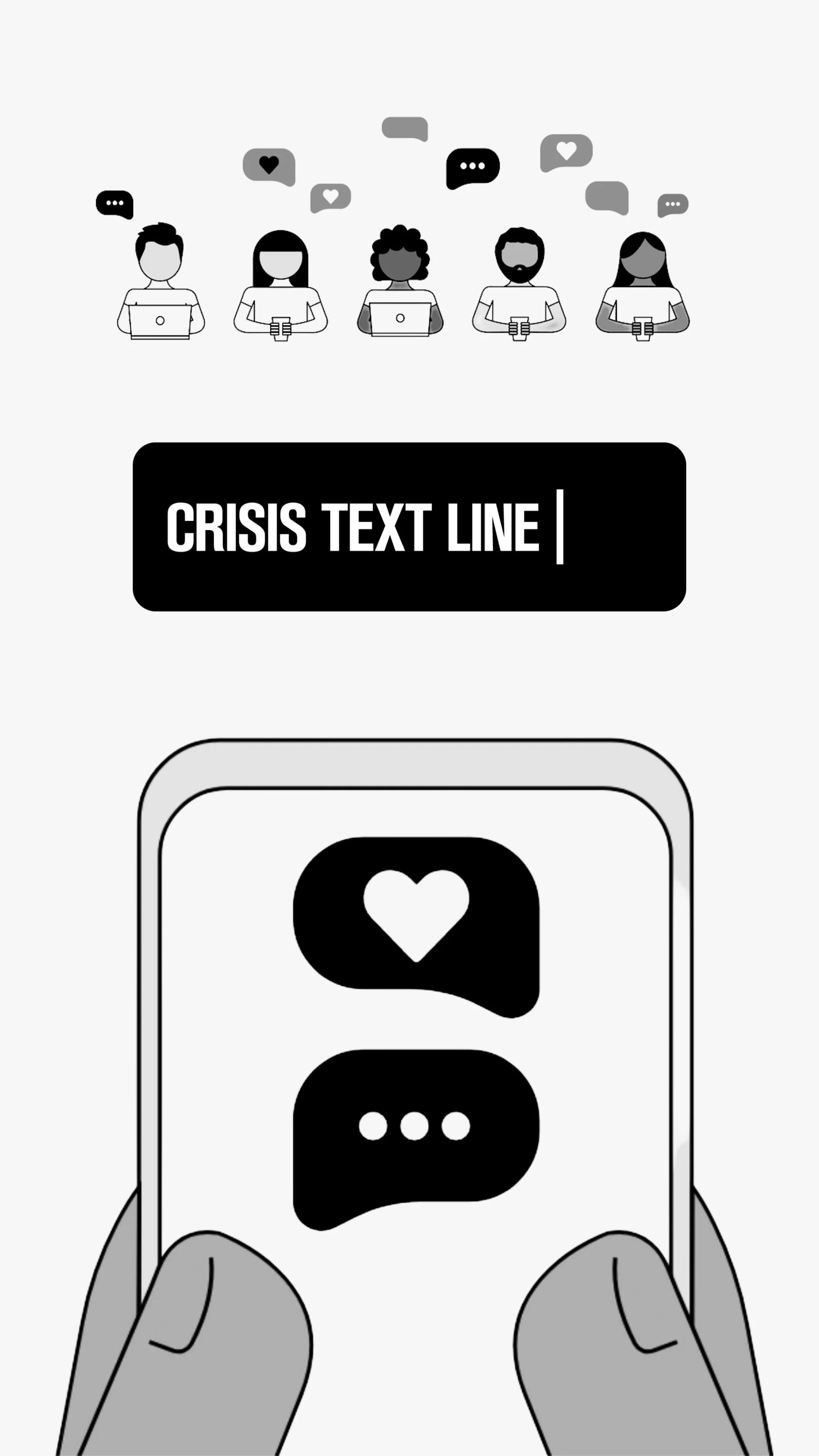162. 10 Psychology Facts You Should Know: How to Improve Your Outlook and Boost Your Well-Being
listen to this episode:
Tune in and subscribe on your favorite platform: Apple Podcasts | Spotify | Stitcher | Google Play | Radio Public | PocketCasts | Overcast | Breaker | Anchor
In this week's solo episode, I share some of my favorite psychology facts that you can use to improve your mental health and overall well-being! I discuss shocking statistics on mental health rates in adults and teenagers, why humans are naturally resilient, what happy people have in common and the surprising benefits to our negative emotions, how our moods can affect our judgments about others, positive psychology techniques that you can use to improve your mood and well-being, a life hack on how to get better sleep, and how to rewire your brain to have more optimism and self-efficacy. If you're looking for evidence-based ways to feel happier or just want to learn more about psychology, then this episode is a MUST-LISTEN!
Mentioned In The Episode…
SHOP GUEST RECOMMENDATIONS: https://amzn.to/3A69GOC
About She Persisted
After a year and a half of intensive treatment for severe depression and anxiety, 20-year-old Sadie recounts her journey by interviewing family members, professionals, and fellow teens to offer self-improvement tips, DBT education, and personal experiences. She Persisted is the reminder that someone else has been there too and your inspiration to live your life worth living.
a note: this is an automated transcription so please ignore any accidental misspellings!
Sadie: [00:00:00] Welcome to She Persisted. I'm your host, Sadie Sutton, a 19 year old from the Bay Area studying psychology at the University of Penn. She Persisted is the Teen Mental Health Podcast made for teenagers by a teen. In each episode, I'll bring you authentic, accessible, and relatable conversations about every aspect of mental wellness.
You can expect evidence-based, teen approved resources, coping skills, including lots of D B T insights and education in. Each piece of content you consume, she persisted, Offers you a safe space to feel validated and understood in your struggle, while encouraging you to take ownership of your journey and build your life worth living.
So let's dive in this week on She persisted.
Your thoughts, your emotions, they're not you. They are things you experience. And having that. That separation from your emotions and your mind can be really helpful, especially with depression. I think we do this a lot. We don't have a self serving bias.
We don't say, I am struggling with depression. We say, I'm depressed. That's part of a personality [00:01:00] trait. I remember when I was in treatment, we did a project where we drew our identities and like, what is important in our lives, relationships, interests? And so many people at this table put depression and anxiety.
That was part of their identity. It was part of them as a person
Hello, hello, and welcome to She Persisted. I am so excited you're here today because we are starting a new series. I've never done an episode like this before, but I'm really excited and I think you're gonna love it. It is called Psychology Facts You Should Know.
I find myself screenshotting, saving, highlighting a lot of various psychology facts that I learn in my classes at Penn that I intend to share on the podcast that really alter my way of viewing mental health. And I sometimes sprinkle them into episodes, but I have yet to do a dedicated episode where I just tell you all of these insights, and share them with you in a really comprehensive way.
And so that is what we are doing today. We are going through the folder on my computer where I screenshot studies from homework, I pull things from my class notes, and I share them with you because I think they are [00:02:00] really helpful pieces of information to have when you approach the conversation of mental health and mental illness.
The first thing I want to cover is something that we have talked about many times on the podcast, Which is that the majority of adults will struggle with mental illness at some point in their life. This is under 50%, but it is generally understood within the mental health field that diagnostic rates are underreported. Many people don't get an official diagnosis, many people don't seek treatment, don't seek care, and mental illness doesn't even begin to encompass the umbrella of mental health challenges.
So, the takeaway there is that the majority of people struggle with their mental health. If you are struggling, you're not the odd one out. You're not the statistical outlier. You are the norm. You are the majority of people. And I think that a lot of us, when we're struggling, we have this narrative of, Why am I struggling when everyone else is okay?
I'm going through the same challenges, I'm experiencing the same stress, but I'm feeling it really differently. Why am [00:03:00] I taking this so hard? Why am I having such a hard time adjusting? Why am I so different from everyone else? And I think this piece of data really shows that you aren't. You are in the majority that you're struggling and it also means that we need to be talking about our mental health more because Most people will relate and most people can understand what you're navigating and provide support or advice or even just empathy.
Now, understanding that the majority of individuals will struggle with mental illness is a pretty grim statistic. And so I want to talk to you about resilience because humans are incredibly resilient creatures, animals, individuals, however you want to describe us.
If you've ever taken social psych or any kind of evolution class, you know that humans are described as really weak. Like, we're not very physically scary. We have a lot of physical vulnerabilities when it comes to living in the wild. It's honestly a miracle that we're still here today.
But we're incredibly smart. We thrive in community. We've worked together to be able [00:04:00] to be, in some ways, the fittest, and survive as the fittest. And so, there's a really interesting piece of data and study that was done about PTSD and mental resilience.
. And it was done on veterans who had been in war and really traumatic situations. And they found that 87 percent of veterans were exposed to potentially traumatic events during their time serving.
And not only that, but the average number of events experienced by veterans was 3. 4. So they didn't just experience one trauma, they were experiencing 1, 2, 3, or even more because 3. 4 was the average. And yet, despite those extremely traumatic circumstances, an environment that was really challenging, likely a lot of mental stress and suffering.
Only 12. 9 percent developed PTSD. So the other, say, 87 percent did not. They recovered. They were resilient. They maybe did experience initial aftereffects. They did [00:05:00] have emotional stress and overwhelm, but they recovered and they went back to their natural baseline. We are incredibly resilient, especially mentally.
And I think that's really telling. It's really powerful to show
how incredibly resilient we are by nature. It's not something that is abnormal or rare. Humans want to be resilient. We want to overcome. We want to. So. Thank you. be able to work through these challenges and overwhelm and emotional distress. ... And when I was struggling, I remember it felt like I was fighting against myself to stop suffering, to get to recovery, to not be depressed.
It felt like my natural instinct was to struggle and be depressed and be anxious and constantly be emotionally dysregulated. So understanding the data that the norm is not that. The norm is to... Struggle with mental health challenges, but also be incredibly resilient and be able to overcome and recover is, I think, a really powerful message.
The next piece of data is also related to mental illness diagnoses, and I brought this one up before, but I don't think we can do this episode without bringing this up because it's such an important piece of information. And [00:06:00] that is that
50 percent of mental illnesses develop by 14. 75 percent by 24. So, just like we know, teenagers are dealing with a perfect storm. They're more emotional. They're less rational. How they show up in social settings is incredibly different from adults.
They are more sensitive to shame and embarrassment. There are so many things about the teenage experiences that really set them up for failure when it comes to having good mental health. And this is one of those things. You are in a critical period again, you make it through your teenage years and don't get a mental illness, you are in the minority.
And so I think understanding that you are You are In that critical period, and that also means that there's a lot of things you can do to set yourself up for success. If you know, okay, I'm at risk of developing a mental illness in my teen years, and that the majority do develop during this age demographic, what can I do to educate myself about my mental health, put the correct systems in place so that I feel supported, and I know skills to cope with emotions and overwhelm when they arise, and be able to be resilient and overcome like we are meant to [00:07:00] do.
Moving away from these really general statistics that you've probably heard before but I had to mention because they're so important.
We are going to talk about a study I read in my positive psychology class. I'm going to read you the abstract and then we're going to debrief because it's a little bit dense, but I also want you to be able to hear this. So, a sample of 222 undergraduates were screened for high happiness using multiple confirming assessment filters.
We compared the upper 10 percent of consistently very happy people with average and very unhappy people. The very happy people were highly social and had stronger romantic and other social relationships than less happy groups. They were more extroverted, more agreeable, and less neurotic scales.
MMPI, which is a certain test. Compared with the less happy groups, the happiest respondents did not exercise significantly more, participate in religious activities significantly more, or experience more objectively defined good events. No variable was sufficient for happiness, but good social relations were necessary.[00:08:00]
Sadie: Members of the happiest group experienced positive but not ecstatic feelings most of the time and reported occasional negative moods. This suggests that very happy people do have a functioning emotion system that can react appropriately to life events. So what does this mean?
There is a whole bag of worms that can be unpacked when it comes to positive psychology that I just learned about this year, but
I think this is a really interesting thing to be aware of and understand. We know, cognitively, that relationships are important. We talked about at the beginning of this episode that humans aren't necessarily very strong independently, but as a group we're able to survive and thrive. And that shows in our mood and in our wellness, our subjective wellness, and individuals that are deemed happy versus neutral and unhappy.
Having social relationships, being involved in your social circle is essential for happiness. And I think the other things that were really interesting in this particular study is these other areas that maybe we think would be correlated with happiness, like religion, exercise, experiencing a lot of really positive events, [00:09:00] don't necessarily lead to being quote unquote happy.
Experiencing positive moods, not ecstatic, crazy happy moods, but feeling good moods. Being involved in your social circle, having those social relationships, being extroverted and even if you're not naturally extroverted like me, being willing to start those relationships and form those relationships,
and being willing to have that proper emotional functioning of of experiencing negative events. It's experiencing whatever emotions come up with that, being resilient, and going back to your baseline. So that was a study that I thought was really interesting and very fascinating and really helpful to understand.
Because I think when you're depressed, when you're struggling, you're like, I just want to be happy. The end goal is happiness. How do I be happy? And there's also a lot of confusion. Uncertainty about what happiness is, what it looks like, what it feels like, what do happy people do? And while I don't think happiness is the end goal, and I think that recovery is a lifelong process and that happiness is a journey and not a destination if we want to get cheesy, it's really interesting to [00:10:00] study what quote unquote happy people do differently from people that are really depressed and unhappy or even just kind of neutral and skating through life.
Another So this is a study that I found to be really interesting, and this is not necessarily related to happiness and mental health, but it was fascinating. It said that going beyond specific negative emotions, negative moods, so not just feeling sad or shameful, but having consistently negative moods over a longer period of time, have benefits,
Including improved judgment accuracy, reduced gullibility, greater perseverance, and more politeness. So I think a lot of the times we tend to have blinders on when it comes to be happy. Happy people are more effective, more successful, they're doing things better than we are. And I think it's interesting to think about the benefits of being in a negative mood. These negative emotions and negative Moods do serve a role and I think when you think about optimistic versus pessimistic people, especially in something like business, the optimistic people are thinking about new ideas.
They're innovating and the pessimistic people are also keeping [00:11:00] things realistic. They're making sure you're staying on budget, that you're hitting numbers, you're doing whatever else has to be done to keep the business going. And so we need both sides of things. We can't always be happy and overwhelmed.
With joy and in an amazing mood always because we don't appreciate those moments. And there also are benefits to negative moods because they do serve a purpose. So when you're having a low day, when you're experiencing a low emotion, it's not abnormal, you don't need to get rid of it, you just experience it, you continue on with your life because not only is it necessary in your mind or your body, it's probably time to tell you something like, You're sad, so you're experiencing a loss from something that you used to enjoy, or you are guilty because you did something that didn't align with your values, or you're ashamed, you're worried about rejection and not being accepted.
Those emotions serve a purpose, and your moods do as well, and they can even be beneficial. So you know what? The sad and depressed people in our society are helping us be more accurately judgmental, we're being polite, and we are not being gullible, and best of all, we are being persistent. I just love that. Like, [00:12:00] She Persisted, the podcast, depressed people are more persistent. And we, again, are resilient as humans, and so when you're experiencing those moods more, you by nature are more persistent and more resilient.
Okay, the next thing I'm going to read you is from another study, and it says people often use their existing mood state to form a judgment of how they feel about external events. So, if you are sad, you're like, today sucks. My boss is annoying. My teacher's being so difficult. I have so much work to do.
You're not being like, oh, I'm sad today. And so I am really not loving everything I'm doing. These external factors are at fault. I think this is really interesting and I think this can be common knowledge that we do tend to externalize our moods and project our moods on external events.
There's also this thing in psychology called the Fundamental Attribution Error. And what this is, is that if you are late to work, and you're rushing through your morning, you likely will be like, ugh, everyone's five minutes late, like, it's totally fine, like, this is not [00:13:00] my fault. So, all the stoplights were red, my alarm didn't go off, like, all these external things caused me to be late and therefore it's not my fault.
But if you're waiting on someone else and they're the one that's late, you will say, they are not organized, they're never on time, this is such a simple request, how are they not able to show up when they're supposed to be here?
We consistently will attribute others behaviors to their personality and their character. But our own behaviors, we decide, are a result of the environment or external factors. And I think this is really interesting, especially in conjunction with the fact that our moods tend to be externalized to our environment.
It's helpful to understand that humans are wired for negativity. Being aware of the negative has kept us alive. Being aware that there was a threat, or that something might be poisonous, or there's a bear attack, meant that we stayed alive long enough to be here today. So we are wired for negativity.
We also experience negative emotions more intensely, because they're more likely to be associated with a threat, whether it's rejection from your group [00:14:00] that's keeping you alive. It's something that's coming to attack you, not having enough food to eat, whatever it is. So we experience those emotions more strongly.
We pay attention to them more. When we have longer moods with negative emotions, we then externalize those to the environment. And we also, especially with others, will attribute these Behaviors to their character and personality. So when we're aware of all these ways that our brain is almost like working against us and having us be pessimistic and negative, it can be really helpful to rewire those thoughts and be like, oh, I gotta give that person grace, like it is my Instinct to say they are so late. This is so annoying. Why are they someone who's always running behind? And instead say, if I was running late today, I'd probably tell myself, Oh my gosh, so many things went wrong. Like I literally couldn't have even possibly been on time unless I woke up at 5am. So understanding the grace that you automatically give yourself and extending that to others and also being really aware of the impact that your own mood and your own emotions and your own mental [00:15:00] processes can have on perceiving your environment is really helpful.
Another fun fact I learned in my positive psychology class is that depressed individuals are more realistic about the future than non depressed individuals. This is just a funny one, to be honest with you. Again, we talked about how people that are consistently having lower moods are less gullible, they are...
More accurate in their judgments, they're more persistent, they're more polite. So like, there's a role that these things play in our life. And being depressed makes you more realistic. And I think that can sometimes, , Obviously come in a deficit. I think if you internally are like, I'm going to do amazing things, I have so many things to hope for in the future, I am going to reach all my goals and have all these things go right for me.
You're really motivated to keep going and keep moving and continue on with what you're doing. And when you're really realistic and you're like, yeah, I have these goals, but maybe I might not reach them. It's a [00:16:00] sad thing to think about. And so understanding that. You, if you are depressed, are wired to be a little bit more realistic about these things and sometimes it can be healthy to be unrealistic and really optimistic, especially when it comes to your future and building your life worth living.
I think that's helpful to understand that bias.
The next thing we're going to talk about is positive psychology interventions. These are different behaviors and mechanisms that have been developed in positive psychology to boost mood, and they're also things that quote unquote happy people do more frequently. They're specifically designed activities that have been studied to improve overall outlook on life and mood, subjectively happy, your subjective well being.
To give you the, like, dictionary definition, positive psychological interventions are activities that have been demonstrated to cause a positive change in a population by increasing a positive variable, for example, optimism. Although they come in a variety of forms and focus on a wide range of positive variables, researchers tend to concentrate their efforts on [00:17:00] seven popular and well researched categories of PPIs.
Sadie: Meaning, Gratitude, Strengths, Savoring, Optimism, Empathy, and Kindness. So here's what I'm going to read to you. This is the fact that all of that was building up to. Collectively, the PPIs in these domains have been shown to alleviate depressive symptoms,. connectedness, reduced suicidal ideation, increased subjective well being or happiness, and many other positive changes across diverse populations. I just thought that was cool, and I'll give you an example of one that I learned in my psychology class that I don't think I've talked about yet, but I thought was really fun and exciting to learn about.
And that is a positive psychology intervention called Three Good Things. What you do is every day you write down three good things that happened to you. If you've ever done the five minute journal, you will recognize that this is actually built into the five minute journal.
In the morning, you write down three things that would make today great. And then at night, you write down three amazing things that happened today. And what positive psychology studies [00:18:00] have showed is that when you are consistently engaging this practice and writing down those three good things,
Sadie: You start to operate with an increased appreciation for these positive moments in your life throughout your day. You're looking for things that boosted your mood. You're looking for things that made you feel happy. And you have an increased awareness and appreciation when those things happen. Whether it's someone held the door for you.
Someone paid for your coffee. You saw a friend and said hello. You got up early before your alarm. You did a workout. You finish that big homework assignment that you were stressed about. You are wiring your brain to not only become aware of these events, but also appreciate them, reflect on them, and sit with that positive emotion.
I love doing this, and I was so excited to learn that like, oh my gosh, I'm already doing this in my five minute journal, and it's backed by psychology research. And so that's one example of a positive psychology intervention that you can implement, that again, like we talked about. It's under the umbrella of decreasing depressive symptoms, , increasing social relationships, reducing [00:19:00] SI, increasing happiness, etc.
Another thing on the same kind of realm of gratitude and three good things is insight on that specific positive psychology intervention, gratitude, which is that gratitude may decrease stress and depressive symptoms while encouraging higher perceived social support. This finding supports the idea that practicing gratitude in clinical settings may be helpful in treating some depressive and anxiety disorders.
So if you've been considering practicing gratitude and you're like, I know gratitude is good, but like, I don't. want to build that into my daily routine. I loved reading this and hearing how it can relate to depression specifically and not just like, oh, how can I feel happier and better about my life?
I think it's really cool to actually understand why that works. And part of that is that you perceive yourself as having more social support in your life. And I think a really big element of depression is feeling isolated, feeling like no one understands you, feeling like You are not supported in your struggle.
And so having gratitude, and specifically gratitude for your interpersonal relationships, allows you to [00:20:00] perceive that social support through a different lens, and almost like amplify your perception, of those relationships. So I love that so much. And I do, also in the Five Minute Journal, like sometimes I think of that as like, The three good things that happened today is gratitude, but there's also a section in the morning where you say, I am grateful for X.
But I almost really love it at night because you're able to look back on specific things that happened during the day and get more granular.
Now we're talking about optimism as a positive psychology intervention, and the quote is that some suggest that optimism creates an illusion of control for an individual in which one feels more secure about one's ability to control one's life. So like normal language, not academic language, being optimistic, you're almost tricking your brain into believing you have more control, you have more autonomy, you have more of an ability to change your life.
In fact, alloy aprons in 1979 found that non-depressed individuals tend to overestimate the control they have on their lives, [00:21:00] whereas depressed individuals tend to accurately estimate their control. This is, again, like delusion working to your benefit. We've all seen on TikTok, like, ugh, in my d Lulu era, like, what makes you believe that delusion, when it comes to your mental health and having a mindset of optimism versus the mindset and mental narratives that tend to coincide with depression can be really beneficial for your life. Again, low moods, depression, negative emotions, they serve a purpose. We know that they're not just popping up when they're not supposed to be there, but we also know that being unrealistic about your future in a good way and being really optimistic allows you to feel like you have more control and feel like you have more hope and, again, you're more motivated towards that life worth living.
And I think this was something that I really struggled with when I was depressed. , I remember people saying, oh, it'll get better, like, you'll work on your mental health, recovery is so possible, like, so many people do it, blah, blah, blah, blah. And I remember being so realistic, like, [00:22:00] exactly what this study is describing, where I was like, I'm a teen, I don't have autonomy over my life.
A lot of these things have been put in my life without me necessarily deciding, like, the fact that I... I'm going to school and I'm surrounded by these people and , I'm born into this family and these are the relationships in my life. I was very realistic about the control I thought I had in my life.
And in some ways, maybe I was right. As an adolescent, you don't have as much autonomy as an adult. You don't have as much freedom to decide who you're spending your days with and what your schedule looks like. what goals you're pursuing, there are a lot of things that are decided for you.
But, , having an optimism mindset not only has the benefits of when you think of optimism and you think like being hopeful and coming up with new ideas and blah blah blah, it also gives you the illusion of control. And so many people with mental health, especially depression and anxiety, feel like they don't have control.
They don't have control over their moods, they don't have control over their thoughts, they don't have control over their behaviors. There's... There... It's almost like their mind is running [00:23:00] wild and their emotions are running wild without their consent. And that lack of control is incredibly distressing and incredibly overwhelming.
And I think understanding how a mindset of optimism, even if you like artificially introduce it and you're like, I'm gonna be optimistic from now on, can help counteract that and can help you perceive a having more control over your life. And kind of be an anecdote to those really distressing feelings of being out of control.
Because I do not like being out of control, let me tell you. I like being organized and I like knowing what's going to happen. I like having everything all planned out. I'm very type a. I do not like being out of control. And so, I think this is a fun little fact from psychology. And then wrapping that up with the rest of this excerpt, this finding suggests that optimism may be linked to an overestimation of one's control over one's life, which is an essential component to healthy functioning.
Additionally, optimism may increase positive and healthy self serving biases in individuals, Whereas depression and pessimism may lead to negativity biases, for [00:24:00] example, discounting positive character strengths. We talked about the fundamental attribution error. You're late.
It's your environment's fault. Someone else is late. It's their fault as a person. There's also something that happens in the mind of the pessimists and in people that have negative moods and people that struggle with their mental health. Which is that when bad things happen, you think it's a shortcoming of you.
You think it's your fault. If you do bad on a test, it's because you're a bad student. It's because you're stupid. It's because you are not good enough. But the healthy way to interpret that, and the optimistic way to interpret that, and the self serving bias, is that you say, I wasn't accurately prepared.
My teacher didn't give me a study guide. I could have studied more. I wasn't prepared for those questions on the test. I didn't understand the material. And you can kind of understand the difference of like, I did something versus I am. I think this comes up a lot in parenting where it's like, you're so annoying versus like, you did something that's annoying.
Or you are so [00:25:00] difficult versus you're making this so difficult. We do that to ourselves as well, and if you're struggling with your self esteem and you are experiencing a lot of shame, you are probably also doing that. You are attributing these things to yourself and your character and you as a person, rather the environment or behaviors you have chosen to make.
Your thoughts, your emotions, and your behaviors, they're not you. They are things you experience. And having that. That separation and having that cognitive dissonance from your emotions and your mind can be really helpful, especially with depression. I think we do this a lot. We don't have a self serving bias.
We don't say, I am struggling with depression. We say, I'm depressed. That's part of a personality trait. I remember when I was in treatment, we did a project where we drew our identities and like, what is important in our lives, relationships, interests? Whatever. And so many people at this table put depression and anxiety.
That was part of their identity. They really strongly identified with that experience and it wasn't that, again, they were experiencing it. It was part of them as a person. [00:26:00] And I think that is something to be really aware of and that enforcing yourself into those self serving biases and rewiring those thought patterns I am, to I did this is incredibly powerful for your self esteem and Your mental health.
And the last thing that I wanna mention for this study excerpt is the idea that having a sense of control is essential to healthy functioning. I think anyone that struggles with mental health immediately knows that to be true. When you feel out of control, when you feel like you have no ability to change your life, when you feel like your emotions and thoughts and behaviors are happening to you, you're really unmotivated, you feel stuck, you feel overwhelmed, you feel angry, there's blame, there's shame, there's everything.
You have to feel like you can make changes, or why are we living life? Why are we doing this? You have to feel like you can shift these thoughts and experiences and emotions, that you can make things better. You can pursue your goals. You can change your life. I think that's something that's really essential to human functioning and life.
And so when you're not having that because you're depressed and anxious and overwhelmed and withdrawn from everything in your life that used to make you [00:27:00] happy, we have to reintroduce that. We have to force ourselves into creating that illusion of control.
This is a random excerpt I found when I was doing a literature review in my lab, and it was done in... I forget the country that it was done. It was done in a random country with men that were like in their 40s, so this is not something
That has been replicated in a teen sample, but I did want to share it because it made me motivated to exercise, and any motivation to get movement, we love. The results of this study showed that more sleep problems, oh, that's what I should also mention, it also talked about sleep. Anything related to sleep and mental health, I'm eating that up, because my sleep is always bad, and I always want it to be better, and I'm always tired.
So, The results showed that sleep problems were associated with worse emotion dysregulation, and more physical activity was associated problems, but also less emotional dysregulation. Furthermore, physical activity and sleep significantly predicted emotion dysregulation, with physical activity being the strong predictor.[00:28:00]
So what does that mean? We know that when you're sleep deprived, you're anxious, you're moody, you're irritable, you're not your best self. We also know that being physically active can help you sleep better. And I think what I found really interesting in this was not that these are three separate variables, that kind of function independently. It was like if you exercise more, you are sleeping better, you are more emotionally regulated. So exercise was that catalyst to resulting in more emotion regulation and better sleep. And if that can't get you to do some little walking around the block today, I don't know what can.
I will say that since I've read this study like a week and a half ago, I went to the gym one time. So we're trying, but it's helpful to have friends of mind.
The second to last excerpt I'm going to share with you is about hope and this is again considered as optimism. We talked about that a lot today. And the quote is that people are naturally optimistic in situations believed to be inherently positive with a natural tendency to heal, flourish, and otherwise improve.
Likewise, patterns of optimism may develop [00:29:00] largely in reaction to the perception that the world is fundamentally good. So we talk about optimism, it has a lot of benefits, it makes us feel like we're more in control, it helps us with a self serving bias, it helps us have better moods, but how do we... Become optimistic and I think this is one way that you can start that process and start reframing your thought process Which is beginning to perceive the world as fundamentally good And i've noticed that since i've been in treatment and I actually had a dream about this last night, which is so random someone was having panic attack and I was holding their hand and I was like you got this I don't these are the dreams i'm having guys like I also had a dream that I got really swollen lips like from a bee sting and it was incredibly uncomfortable, so I don't know what's going on these days, but back to what I was saying, which is that since I've been in recovery and left treatment and continue to mental health, I've noticed a mindset shift to really having the belief of, What's meant to happen will happen and things work out for the best [00:30:00] and kind of like lucky girl syndrome.
I remember when that was a trend on TikTok and I was like, that is what's happened. Like, I really do believe that. That things will work out for the best. If they don't work out the way you want them to, it's because it wasn't meant to be. It wasn't meant to happen. And that you are moving in the right direction.
You are on your journey and things are happening for a reason. And that people are inherently kind and compassionate and that the world is a good place. I think having that mindset is not easy. I used to be really pessimistic, really terrible, and my life sucks, and it's never gonna change, and I hate everything around me, and it's not my fault that my life is terrible.
Like, literally, that was what I was thinking all day, every day. And through the many years of therapy and also experiencing the world in a much more positive way as I was no longer struggling, I have developed that, that worldview that things are good. They are. The minority is these tough moments and in general things are positive and people are good and the world is good and That leads to that optimistic mindset and Again we [00:31:00] talked about What causes people to be optimistic?
It's when they're in situations that they believe to be positive and that they have a natural tendency to heal and flourish and improve. And so, if you are approaching your mental health as a situation where you are going to heal, you are going to feel better, you are going to improve in your ability to regulate your emotions and cope with things and have healthy relationships.
You become more optimistic. So how can we perceive our environments as positive and as a container for us to heal, flourish, and improve? The last psychology fact I'm going to share with you today I'm sorry you feel like you're in a lecture because I'm throwing so much at you, is about self efficacy. The quote is that people believe they can change a situation when they see themselves as competent enough, but also when they see the situation as plastic enough.
Likewise, a persistent pattern of self efficacy may develop partially in response to the world is improvable. Again, we go back to [00:32:00] this. Positive mindset and what I experienced in my recovery, which is that the initial mindset was this isn't my fault. My parents raised me this way. My brain works this way.
I'm not capable of recovery. It's neurochemicals in my brain. Like whatever it was, it was not my fault. The blame was completely externalized and it was not my fault. I had no ability to change my life. I had no, there was no possibility that I could heal my mental health. But when we see our environments as adjustable and adaptable and...
invariable, and we move away from that belief that they're completely unchangeable, completely fixed, we build that muscle of believing that we can change our lives.
Changing your life requires two things. It requires believing that you are capable of changing your life, and perceiving your life as true. variable. You not only have to have the skill set and have the confidence in yourself that that skill set exists and that happens when you continuously build that muscle of changing your life,
but also truly and genuinely believing that the world and the environment you're living in is [00:33:00] improvable and believing That it has the potential to change in a positive way. You need both. You might have the skills, But if you believe the world is completely fixed and that no matter what you do, nothing will change, you're not able to move forward and you don't have that belief that you can change your life. And similarly, when you believe the world is improvable and has the capacity for positive change, but you don't see yourself as having the skills to do so, you're at an impasse. But, when you have the self efficacy and the confidence in your skill set and you perceive the world as improvable and with potential for positive change, That is when you truly believe that you can make changes and improve your life. So I know I got really deep and we talked about a lot, but this is one of my favorite episodes I've done in a really long time. I hoped you loved it as much as I did. I am going to continue highlighting saving psychology insights to my computer folder, and I will come back with another episode just like this one because this was really fun, and I love these kinds of things on TikTok when it's like psychology fact, and I've never heard it before, and [00:34:00] it's actually really interesting.
So. I hope you loved this as much as I did. I hope it was helpful. I hope a lot of these you haven't heard before. And again, if you want the study, if you want the information, email me. I will absolutely send it to you. And with that, I will see you next week. If you liked the episode, review, like, subscribe.
Share it on social media. All the things. But thank you guys so much for listening. I really, truly do appreciate it. And I hope you have an incredible week that's filled with optimism and the belief that you can change your life. And even if you're depressed, just remember that that means you're more persistent and you're less gullible and that you're not odd or weird or abnormal for feeling that way because these moods and emotions. And we are wired for negativity with that positive way to end the episode, but I thought that was fun, and I hope you guys loved that.
Thank you so much for listening to this week's episode of she persisted. If you enjoyed, make sure to share with a friend or family member, it really helps out the podcast. And if you haven't already leave a review on apple podcasts or Spotify, you can [00:35:00] also make sure to follow along at actually persisted podcast on both Instagram and Tik TOK, and check out all the bonus resources, content and information on my website.
She persisted podcast.com. Thanks for supporting. Keep persisting and I'll see you next week.
© 2020 She Persisted LLC. This podcast is copyrighted subject matter owned by She Persisted LLC and She Persisted LLC reserves all rights in and to the podcast. Any use without She Persisted LLC’s express prior written consent is prohibited.































